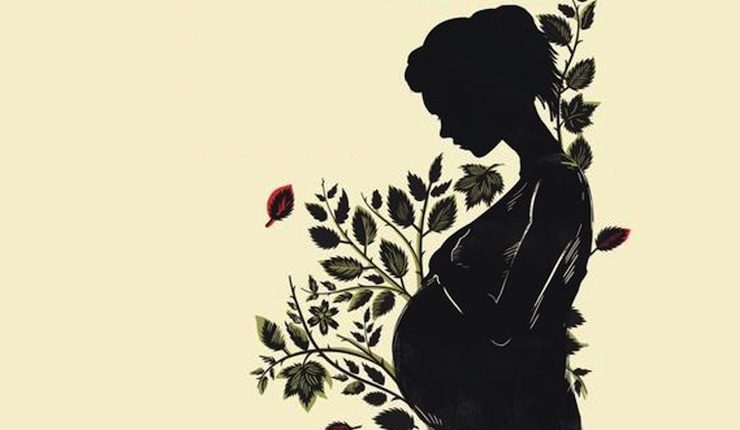Everything is the same… and yet, not. Startling differences from the familiar world you thought you knew confront you at every turn: unfamiliar technologies, reductions of basic freedoms, new rules and authority figures that demand your obedience. Your understanding of the world and your place in it is tested. It’s nothing less than a challenge to your sense of self.
Are you a character in a work of dystopian fiction? Or are you just… uh, trying to deal with this whole parenting thing?
Motherhood and dystopian fiction present such a tremendous harmonic convergence—the essential themes overlap and amplify each other so well—that it’s no wonder that Margaret Atwood’s 1985 novel The Handmaid’s Tale is still, 30-plus years later, so provocative and compelling. As a writer of speculative feminist fiction about motherhood (in both my first novel The Barter and my most recent novel The Completionist), and as an editor at a popular community site for mothers and mothers-to-be, I’m especially drawn to stories about dystopian near-futures and how women—and particularly mothers—rise to the challenges they present. These five ingenious feminist fictions about motherhood that take place in dystopian, near-future worlds do not disappoint.
The Handmaid’s Tale by Margaret Atwood
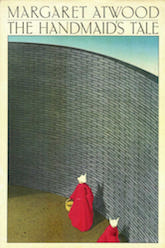 The grandmama of them all is back on bestseller lists and the inspiration for a wildly successful streaming series that brings Atwood’s original storyline onto an even bigger, scarier, more international stage. Atwood challenges us with a vision of a world so terrifyingly altered that women have lost every freedom, and motherhood itself has been redefined as a state of slavery. Yet of all the losses women face in Atwood’s story, Offred’s loss of her daughter is the most intimate and horrifying. Still, Offred’s determination to remain essentially herself—in her stubborn love of language (when even reading food labels is forbidden), and in her refusal to deny her own kindness, passion, anger, and fear—is what makes this novel such a masterpiece.
The grandmama of them all is back on bestseller lists and the inspiration for a wildly successful streaming series that brings Atwood’s original storyline onto an even bigger, scarier, more international stage. Atwood challenges us with a vision of a world so terrifyingly altered that women have lost every freedom, and motherhood itself has been redefined as a state of slavery. Yet of all the losses women face in Atwood’s story, Offred’s loss of her daughter is the most intimate and horrifying. Still, Offred’s determination to remain essentially herself—in her stubborn love of language (when even reading food labels is forbidden), and in her refusal to deny her own kindness, passion, anger, and fear—is what makes this novel such a masterpiece.
Future Home of the Living God by Louise Erdrich
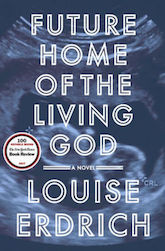 Evolution has begun to reverse itself, and in an America slowly devolving into chaos, Cedar Hawk Songmaker, the heroine of Louise Erdrich’s 2017 novel, finds herself unexpectedly pregnant. As humankind’s future collapses back into its past, however, nothing, not even pregnancy, is immune to the frightening reversal of natural progress, and being pregnant puts Cedar in danger of losing her freedom, her identity, and her life. Even more terrifying than bringing a child safely into this world, though, is the danger posed by the ominous Mother, who offers a bounty for anyone willing to help the government round up pregnant women. This chilling page-turner is by turns hilarious, stomach-wrenching, and unexpected, and (in my humble opinion) an underrated read by a master storyteller.
Evolution has begun to reverse itself, and in an America slowly devolving into chaos, Cedar Hawk Songmaker, the heroine of Louise Erdrich’s 2017 novel, finds herself unexpectedly pregnant. As humankind’s future collapses back into its past, however, nothing, not even pregnancy, is immune to the frightening reversal of natural progress, and being pregnant puts Cedar in danger of losing her freedom, her identity, and her life. Even more terrifying than bringing a child safely into this world, though, is the danger posed by the ominous Mother, who offers a bounty for anyone willing to help the government round up pregnant women. This chilling page-turner is by turns hilarious, stomach-wrenching, and unexpected, and (in my humble opinion) an underrated read by a master storyteller.
Red Clocks by Leni Zumas
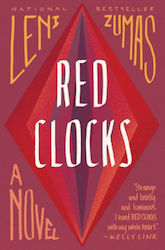 The Pacific Northwest in Zumas’s disquieting depiction of our country’s not-so-far-off-future is in many ways achingly familiar: high school girls chase a dream of love, married life is crowded but lonely, mothers and daughters try and fail to connect. But not only is abortion illegal, no one outside of a two-parent family may raise a child—or even try to conceive. As the women in Zumas’s novel struggle to define motherhood for themselves, strictures and regulations close in around them like a clenching fist. Readers who crave a bracing shot of politics in their dark dystopian coffee should reach for this one.
The Pacific Northwest in Zumas’s disquieting depiction of our country’s not-so-far-off-future is in many ways achingly familiar: high school girls chase a dream of love, married life is crowded but lonely, mothers and daughters try and fail to connect. But not only is abortion illegal, no one outside of a two-parent family may raise a child—or even try to conceive. As the women in Zumas’s novel struggle to define motherhood for themselves, strictures and regulations close in around them like a clenching fist. Readers who crave a bracing shot of politics in their dark dystopian coffee should reach for this one.
Mother of Invention by Caeli Wolfson Widger
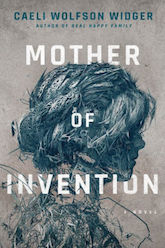 Welcome to the future: Celebrated feminist author and entrepreneur Tessa Callahan joins forces with an ambitious Silicon Valley wunderkind to launch the Seahorse Project, a reproductive technology with the potential to change women’s lives. Pregnancy, that nine-month ordeal with undeniable implications for women’s career trajectories (not to mention their physical and emotional health), has been accelerated and made more accessible—a breakthrough for women that Tessa desperately wants to believe in, even as the initial trial for their as-yet-untested tech kicks off a series of disturbing events. Like the award-winning series Black Mirror, Widger’s novel imagines an array of seductive technologies, all born of the best intentions, but with dark downstream effects.
Welcome to the future: Celebrated feminist author and entrepreneur Tessa Callahan joins forces with an ambitious Silicon Valley wunderkind to launch the Seahorse Project, a reproductive technology with the potential to change women’s lives. Pregnancy, that nine-month ordeal with undeniable implications for women’s career trajectories (not to mention their physical and emotional health), has been accelerated and made more accessible—a breakthrough for women that Tessa desperately wants to believe in, even as the initial trial for their as-yet-untested tech kicks off a series of disturbing events. Like the award-winning series Black Mirror, Widger’s novel imagines an array of seductive technologies, all born of the best intentions, but with dark downstream effects.
The Children of Men by P.D. James
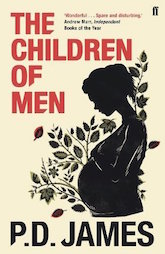 It’s been twenty years since a human child has been born, and humanity lives in terror of its own extinction, fetishizing a memory of motherhood and babies. Meanwhile, an authoritarian government ruthlessly redistributes resources and strips away basic freedoms. The action in a dystopian novel often kicks off with a miracle that threatens to upend the “new normal,” and in P.D. James’s trenchant 1992 bestseller (which inspired the very different—but still exciting—2006 Alfonso Cuaron film of the same name), it’s the revelation that a woman might actually be pregnant. This secret pulls Theo, a disillusioned academic, into a dangerous scheme to help a dissident group protect the mother-to-be—ultimately by exposing her. The brilliant premise and the heartbreakingly hopeful finish have made this the other classic dystopian novel of motherhood, on the shelf right next to Atwood’s.
It’s been twenty years since a human child has been born, and humanity lives in terror of its own extinction, fetishizing a memory of motherhood and babies. Meanwhile, an authoritarian government ruthlessly redistributes resources and strips away basic freedoms. The action in a dystopian novel often kicks off with a miracle that threatens to upend the “new normal,” and in P.D. James’s trenchant 1992 bestseller (which inspired the very different—but still exciting—2006 Alfonso Cuaron film of the same name), it’s the revelation that a woman might actually be pregnant. This secret pulls Theo, a disillusioned academic, into a dangerous scheme to help a dissident group protect the mother-to-be—ultimately by exposing her. The brilliant premise and the heartbreakingly hopeful finish have made this the other classic dystopian novel of motherhood, on the shelf right next to Atwood’s.
 Siobhan Adcock is the author of the novels The Barter and The Completionist. Her short fiction has been published in Triquarterly and The Massachusetts Review, and her essays and humor writing have appeared in Salon, The Daily Beast, and Huffington Post. She lives with her husband and daughter in Brooklyn.
Siobhan Adcock is the author of the novels The Barter and The Completionist. Her short fiction has been published in Triquarterly and The Massachusetts Review, and her essays and humor writing have appeared in Salon, The Daily Beast, and Huffington Post. She lives with her husband and daughter in Brooklyn.










